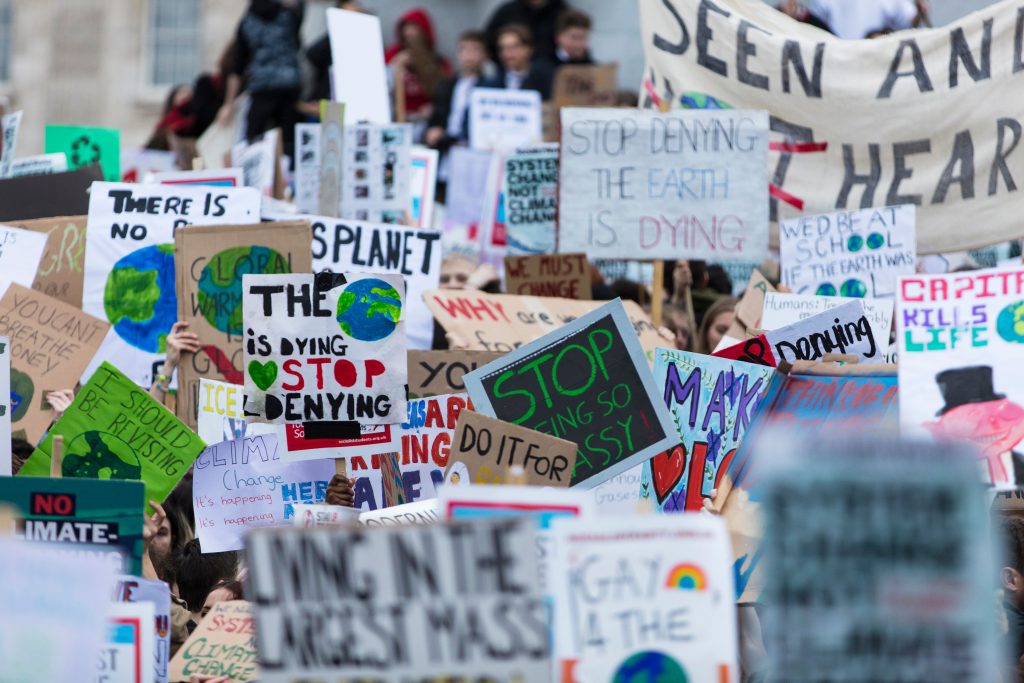The climate crisis is a human rights crisis.
When government’s talk about the climate crisis we hear promises to transition from coal to cleaner energy and to honour commitments made in the Paris Agreement and climate finance pledges. But what is consistently lacking from the conversation is adequate recognition that the climate crisis is severely affecting humanity.
In 2022 we continued to see severe weather events destroy livelihoods, homes, communities and lives. In Pakistan, the flood damage was far-reaching, leaving close to three quarters of a million people without access to safe and adequate housing, and killing nearly 1,700 people.
Malaysia was also hit by extreme floods displacing more than 8,000 people and leaving 50 people dead. Tropical Cycle Gombe killed more than 50 people in Mozambique. In the Philippines, Tropical Storm Megi killed more than 120 people. The list goes on.
But South Africa hasn’t escaped the chilling effects of extreme weather events.
Earlier this year at least 435 people were killed during the KwaZulu-Natal floods, 8,584 houses were destroyed, and 13,536 homes were damaged. While in the Eastern Cape, the slow onset drought in Nelson Mandela Bay continues to threaten access to safe, sufficient and reliable water for thousands of residents.
All these events are affecting people’s human rights to basic services, yet these human rights are not fully integrated into climate treaties, climate laws or climate debates. This was repeated when South Africa’s new Climate Change Bill was tabled this year, and in its current form lacks a human rights centered approach. Although it is a welcome and long overdue intervention, the South African government must heed calls from civil society to use the Bill to outline obligations that protect the human rights of present and future generations against the adverse effects of climate change.
But trust in the government has waned and continues to do so.
“I have nothing to ask from the government because they don’t help with anything.” This was the feedback Amnesty International South Africa received from a victim of the KwaZulu-Natal floods in April 2022. As we spoke to residents affected by the floods, it became clear that the intersecting challenges of sustainable development, climate change and inequality require new modes of governance in South Africa. There must be a prioritisation of the protection of human rights as outlined in our Constitution. Accountability measures must be strengthened to combat structural challenges and systemic inequalities to build the resilience of people exposed to climate change disasters.
COP27, the United Nations’ annual Climate Change conference, is an opportunity to show the world that the South African government is committed to tackling the climate emergency. The decisions made along with other world leaders in Sharm el-Sheikh, Egypt, this year, will have lasting consequences for all of humanity.
Now is the time for rapid and bold action on climate change that puts people and human rights at its centre. What does this look like?
States must, among other things:
- Put human rights, including labour rights and the rights of Indigenous peoples, at the centre of all COP27 negotiations and decisions, and facilitate the meaningful participation of the communities most impacted by the climate crisis.
- Take immediate action to ensure their 2030 emissions targets are aligned with the need to keep the rise of global average temperatures below 1.5°C. Targets must reflect states’ historic responsibility for the climate crisis and also their current financial capacity.
- Commit to a rapid and equitable fossil fuel phase-out through a just transition – put people above profit.
- Establish a financing facility to address loss and damage.
- Create a clear plan for wealthy states to increase contributions to financing climate change mitigation (i.e., reducing emissions) and adaptation.
- Agree on a concrete and human rights-consistent work plan for the Glasgow Work Programme on Action for Climate Empowerment.
So COP27 isn’t simply about handshakes, networking, or side events. It is about taking action that will protect you, me, our families and communities from enduring another deadly year of extreme weather events made more severe and frequent by the climate crisis.
One more time: the climate crisis is a human rights crisis.
Alicia Jooste is the Activism Coordinator for Mobilising at Amnesty International South Africa.
This opinion piece was published on News24 on 14 November 2022.


